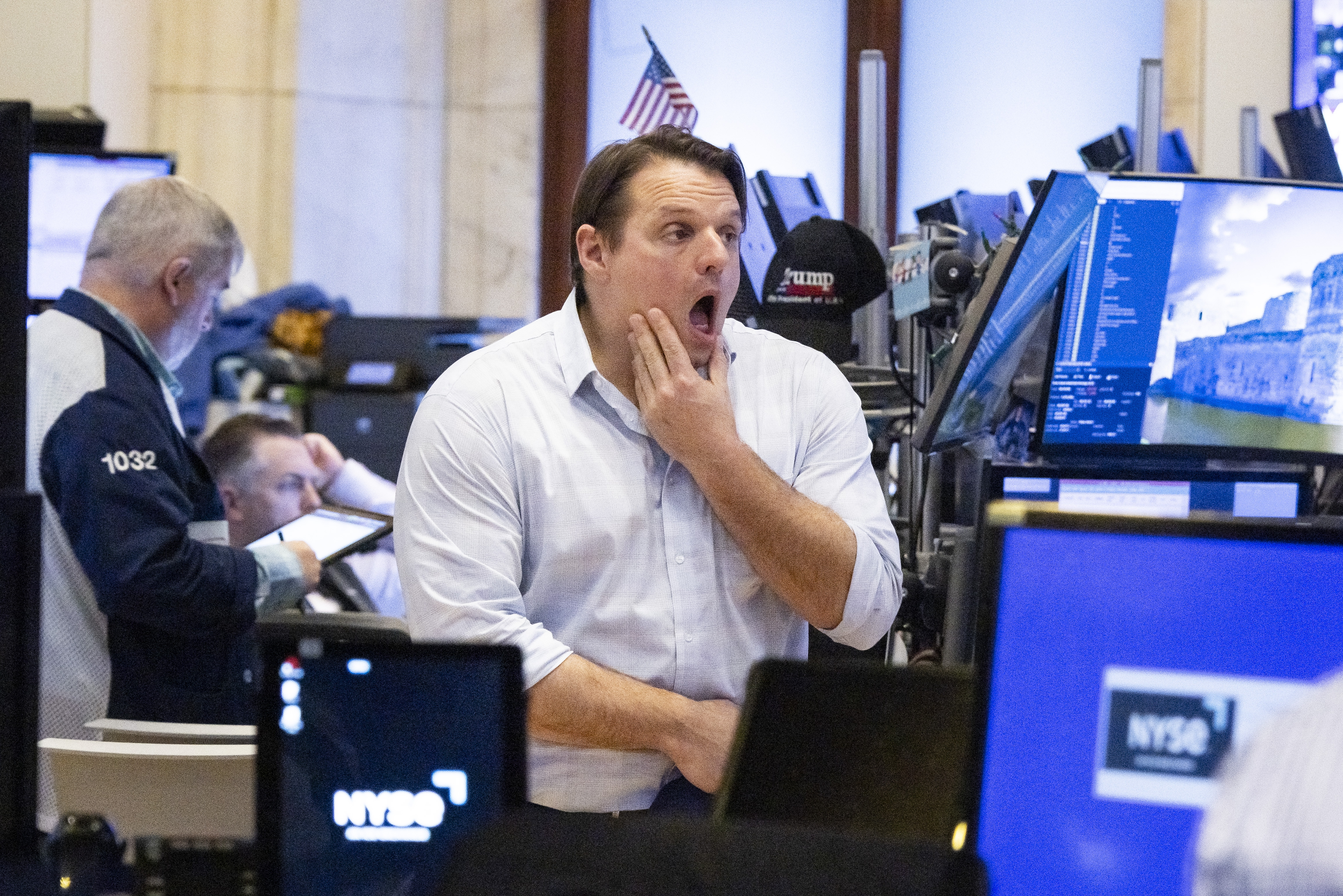
Trump's US tariffs are threatening global trade and the world economy, sparking fears of an international recession. But experts say markets will recover.
Financial markets around the world have been slammed by the Trump administration’s sweeping tariffs on its trading partners, and China’s swift retaliation.
Share markets have posted their biggest declines since the COVID pandemic hit in 2020, as fears of US recession surged. Iron ore, copper, oil, gold and the Australian dollar have all tumbled.
On Wall Street, leading indices have fallen around 10 percent since the tariffs were announced, while the tech-heavy Nasdaq is down 20 percent from its recent peak. European and Asian markets have also slumped.
In Australia, the key S&P/ASX 200 slid another 4.2 percent on Monday to levels last seen in December 2023, taking its three-day losses since the announcement to more than 7 percent.
Why are markets reacting so badly?
Financial markets reacted so negatively because the tariffs were much larger than expected. They represent the biggest upheaval in global trade in 80 years.
Many traders were hoping the tariffs would be used mainly as a bargaining tool. But comments by US President Donald Trump that markets may need to “take medicine” seem to suggest otherwise.
The tariffs are expected to weaken economic growth in the US as consumers pare back spending on more expensive imports, while businesses shelve investment plans. Leading US bank JP Morgan has put the chance of a US recession as high as 60 percent.
This comes at a time when the US economy was already looking fragile. The highly regarded GDPNow model developed by the Atlanta Federal Reserve Bank indicates US March quarter GDP will fall 2.8 percent, and that was before the tariff announcement.


























573